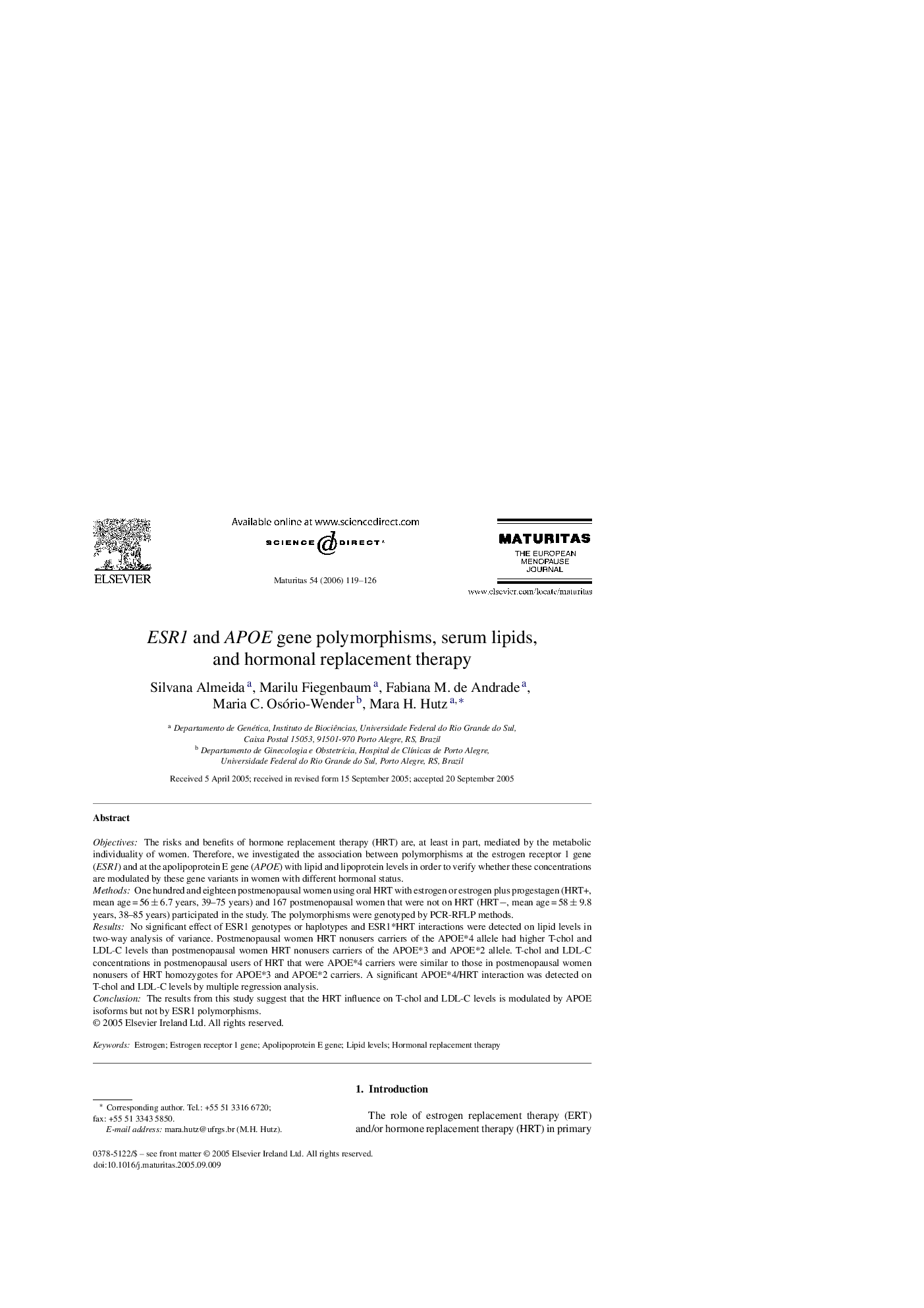| کد مقاله | کد نشریه | سال انتشار | مقاله انگلیسی | نسخه تمام متن |
|---|---|---|---|---|
| 1919040 | 1047989 | 2006 | 8 صفحه PDF | دانلود رایگان |

ObjectivesThe risks and benefits of hormone replacement therapy (HRT) are, at least in part, mediated by the metabolic individuality of women. Therefore, we investigated the association between polymorphisms at the estrogen receptor 1 gene (ESR1) and at the apolipoprotein E gene (APOE) with lipid and lipoprotein levels in order to verify whether these concentrations are modulated by these gene variants in women with different hormonal status.MethodsOne hundred and eighteen postmenopausal women using oral HRT with estrogen or estrogen plus progestagen (HRT+, mean age = 56 ± 6.7 years, 39–75 years) and 167 postmenopausal women that were not on HRT (HRT−, mean age = 58 ± 9.8 years, 38–85 years) participated in the study. The polymorphisms were genotyped by PCR-RFLP methods.ResultsNo significant effect of ESR1 genotypes or haplotypes and ESR1*HRT interactions were detected on lipid levels in two-way analysis of variance. Postmenopausal women HRT nonusers carriers of the APOE*4 allele had higher T-chol and LDL-C levels than postmenopausal women HRT nonusers carriers of the APOE*3 and APOE*2 allele. T-chol and LDL-C concentrations in postmenopausal users of HRT that were APOE*4 carriers were similar to those in postmenopausal women nonusers of HRT homozygotes for APOE*3 and APOE*2 carriers. A significant APOE*4/HRT interaction was detected on T-chol and LDL-C levels by multiple regression analysis.ConclusionThe results from this study suggest that the HRT influence on T-chol and LDL-C levels is modulated by APOE isoforms but not by ESR1 polymorphisms.
Journal: Maturitas - Volume 54, Issue 2, 20 May 2006, Pages 119–126